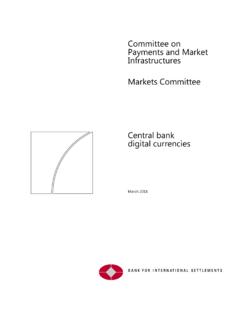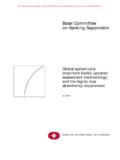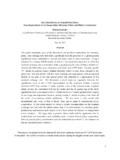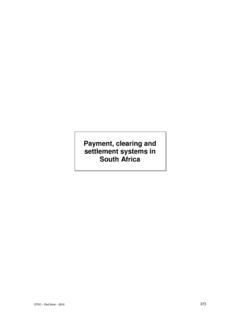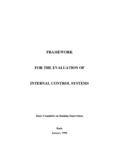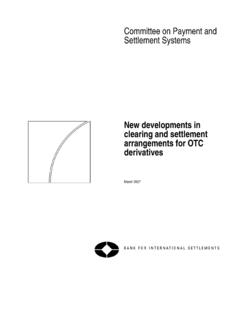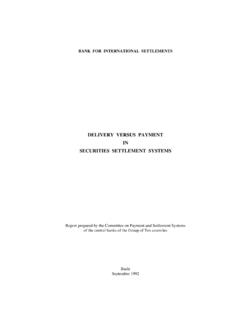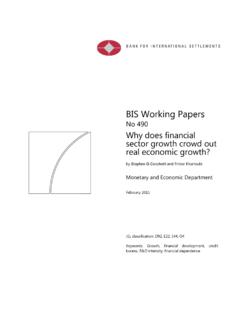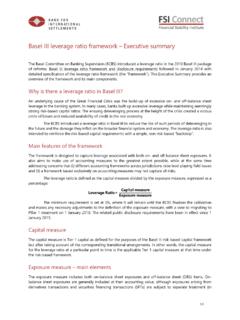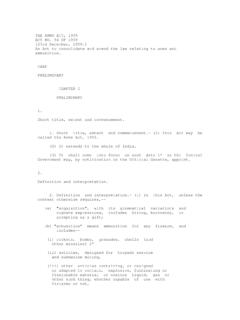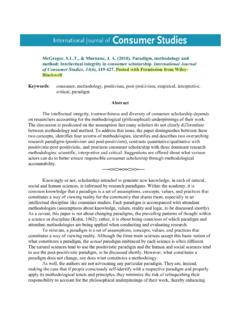Transcription of Antonio Fazio: Amintore Fanfani
1 Antonio fazio : Amintore Fanfani Address by Mr Antonio fazio , Governor of the Bank of Italy, at the inaugural meeting of the Amintore Fanfani Foundation, Rome, 9 March 2005. * * * 1. Amintore Fanfani was a protagonist of Italian institutional and political life; possessed of a strong will, he always acted in the light of an elevated and internally consistent view of society and domestic and international reality that was rich in historical references and ideals. This breadth of vision was apparent when one had the opportunity to talk with him on economic and social issues.
2 His action was directed to achieving concrete results, with the definition of objectives and instruments able to impinge on reality. His declared aim, sometimes enounced amidst polemics and disagreements as to the means, was always that of serving the common good. His cursus honorum shows him to have emerged first as a scholar and teacher of economic history; subsequently, as a political leader, member of the Constituent Assembly, government minister and holder of high positions in State institutions. He was an architect of projects of social reform and promoter of international peace initiatives.
3 I have personal memories of Fanfani , as well, since he was one of my professors at Rome University. His historiographical work traced the thinking that over the centuries investigated the evolution of the economy and contains reconstructions covering long periods. He showed great ability in setting the relationships linking the economy, institutions and society within a unitary framework. His background, the debate on reconstruction, after the enormous material, civil and moral damage inflicted by the Second World War, and his vision of how the economy should operate, necessarily in man s interest, led him, especially as a government minister, to foster reforms that influenced the organization of the State and left their mark on Italy s history.
4 2. In the Constituent Assembly Fanfani contributed to the search for agreement among the reforming forces Catholic, leftist and liberal democratic on a formula that is a synthesis of the fundamental features of the new State and the centrality of democracy. The first article of the Constitution states that the Republic is founded on labour, expression of the dignity of citizens, guarantee of everyone s full participation in organized civil life, the means for all to exercise popular sovereignty, to the benefit of all. We have perhaps not yet reflected enough on the right to work; the political sphere and the economy must contribute to its realization; the former must preside over the latter s autonomous operation.
5 The right to work in many cases still has to be realized. The conditions for achieving a satisfactory level of employment vary with the changes in the economic context, the state of technology, the organization of society, and the relations between economies and States. The right to employment is realized in the first place through growth and development. In the 3rd Subcommittee of the Constituent Assembly, Fanfani was the rapporteur for matters concerning the social control of economic activity. The text, approved after a series of amendments, affirms the freedom of private initiative, but draws attention to its social function.
6 While recognizing economic freedom, a proviso is introduced allowing the public authorities to set limits in order to protect the general interest. In recent years this principle has been widely debated; some have seen it as conflicting, in a changing economic reality, with the principle of competition, which in the meantime has become widely established in the legal order. But it needs to be reaffirmed that, even in the present context, the relationship between freedom of enterprise and public regulation and control remains valid, albeit to differing degrees.
7 In the period of postwar reconstruction Fanfani , coming from the experience of the Great Depression, operated in a political and economic system characterized by an extensive presence of the State in the economy. It was certainly not a question of a planned economy; it was a conception of economic life that, based on social guidelines, lay somewhere between liberalism and statism. 3. After the catastrophe of the Second World War, state intervention in the economy played an essential role, mobilizing the nation s best intellects and with the inefficiency that would later cripple it still far off.
8 In the 1930s the public sector accounted for about 15 per cent of the economy in the industrial nations. The Depression that swept the private sector had a devastating impact, with major political repercussions, in the absence of the stabilizing effect of a substantial sector not subject to cyclical swings. In the 1950s the State s share of the economy in all the economically advanced countries was near 30 per cent. By the 1980s it had reached and in several countries exceeded 50 per cent. Problems of efficiency and rigidity became increasingly evident.
9 In the 1950s Amintore Fanfani fought to put the principles of the Constitution into practice and guarantee economic and social rights and freedoms: the right to work, to housing, to a more equitable distribution of wealth. On various fronts he furthered projects to improve the condition of Italy s economy and increase the use of manpower: reforestation programmes, public works and energy policy. As Minister of Labour, Fanfani undertook the first public residential construction programme, the INA-Casa Plan, financed by worker and employer contributions supplemented by State resources and the intervention of the banking system.
10 In a situation of high unemployment, this programme helped to create jobs. As Minister of Agriculture, he completed the land reform initiated by Antonio Segni, a reform of fundamental importance because it significantly affected not only economic but also political and social relations. During the 1950s and 1960s the Italian economy grew at remarkably rapid rates. Employment and labour productivity increased. There was substantial private investment alongside public investment. A whole set of institutional, financial and foreign policy instruments were created that enabled Italy to advance by leaps and bounds.
